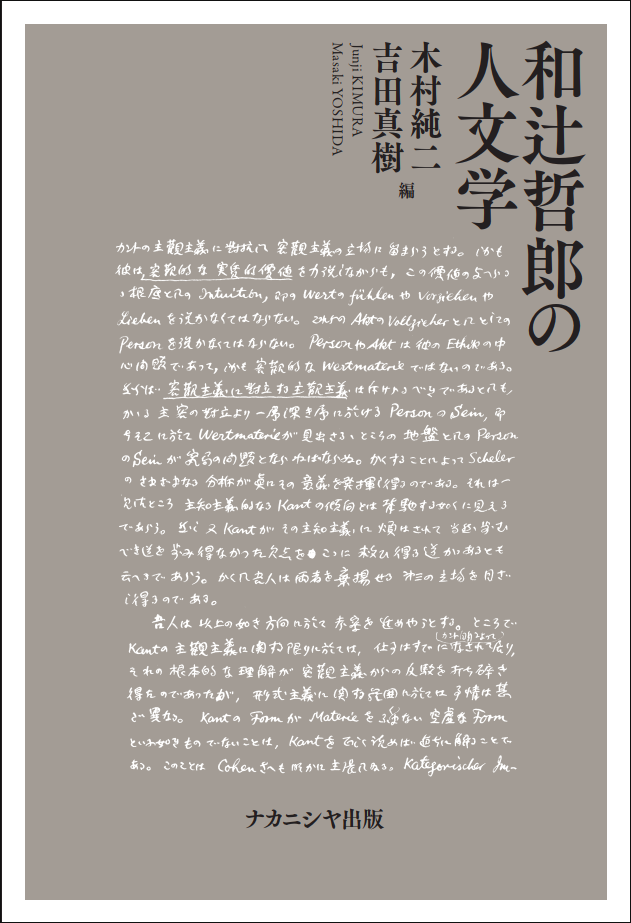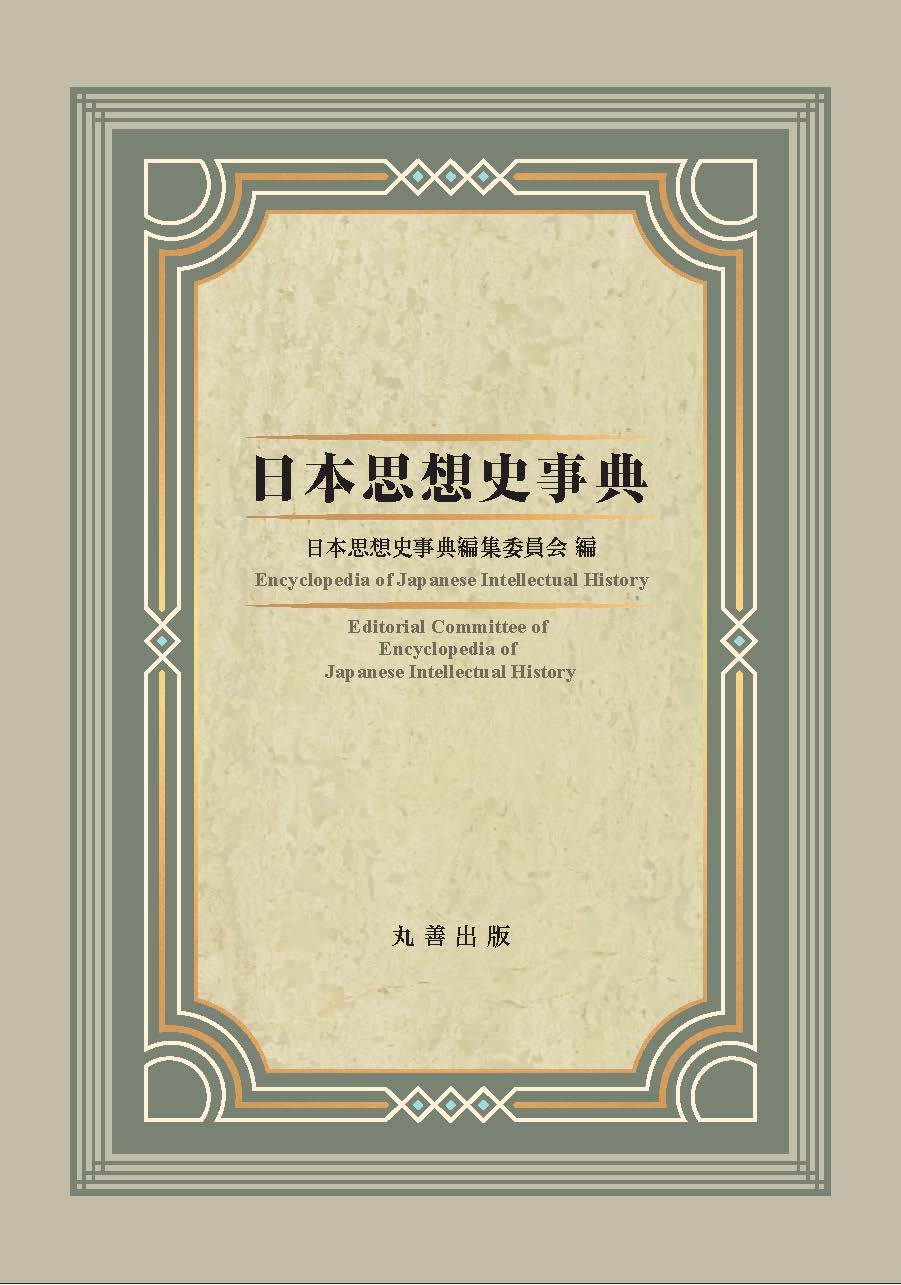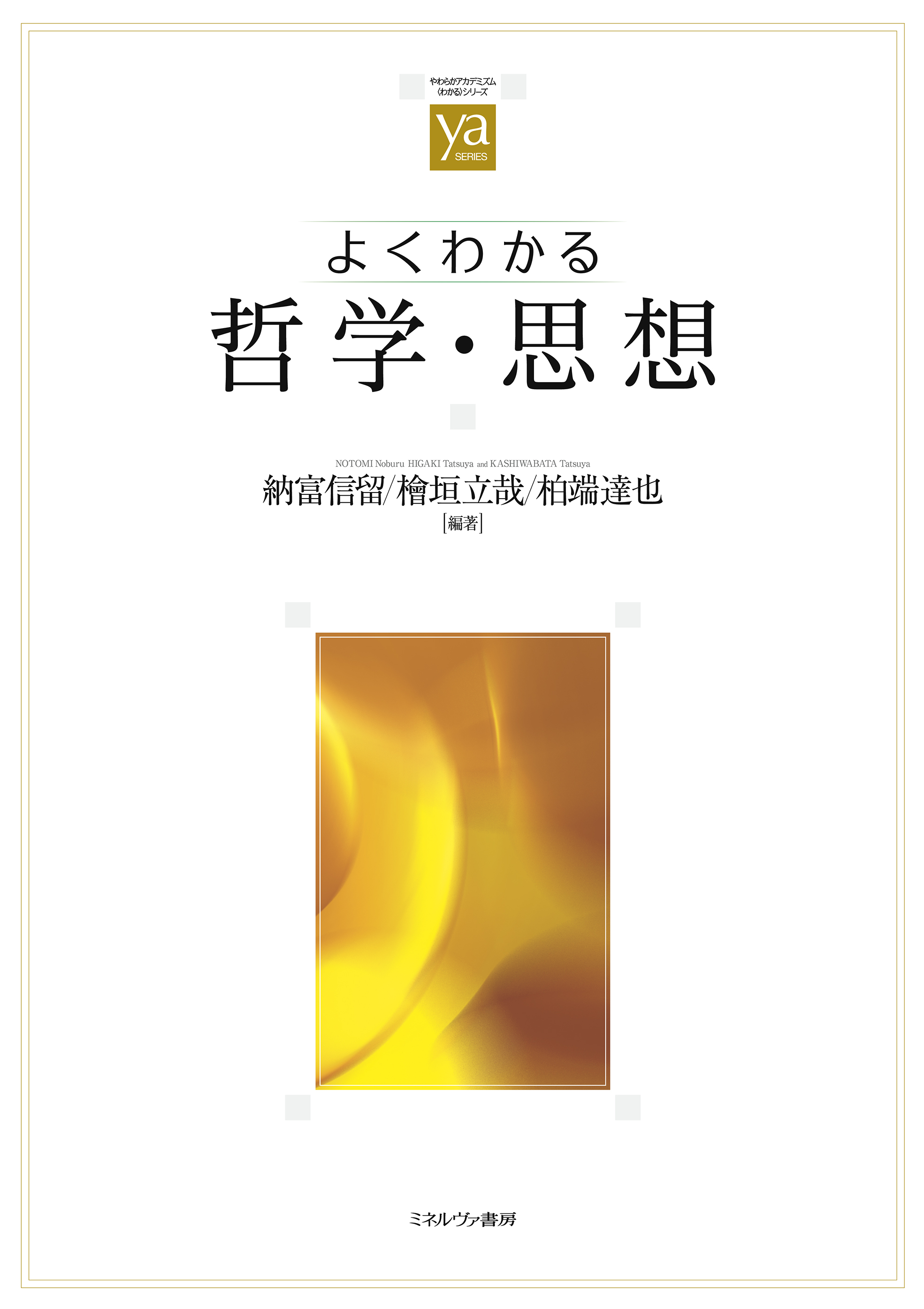
Title
Watsuji Tetsurō no Jinbun-gaku (Watsuji Tetsurō and the Humanities)
Size
320 pages, 127x188mm
Language
Japanese
Released
March 28, 2021
ISBN
9784779515408
Published by
Nakanishiya Shuppan
Book Info
See Book Availability at Library
Japanese Page
This book describes the diverse achievements related to the humanities of Watsuji Tetsurō (1889–1960), a representative philosopher and ethicist of modern Japan who established the structure of the Department of Ethics in the Faculty of Letters at the University of Tokyo that has remained in place down to the present day, and it also explores their contemporary significance.
In his youth, inspired by modern Western literature, Watsuji intended to become a writer. But he took up the study of Japanese culture on account of his encounter with Dōgen and ancient Japanese culture, and after assuming the position of lecturer in ethics in the Faculty of Letters at Kyoto University at the invitation of Nishida Kitarō, he critically studied Western ethics since the time of Aristotle. Further, taking the view that, in order to study Japanese Buddhism, it was necessary to go back to the origins of early Buddhism in India, he carried out research on Buddhism, incorporating the latest findings from Japan and abroad, and published The Practical Philosophy of Primitive Buddhism. Thereafter, he held the chair in Ethics at the University of Tokyo for many years and, in opposition to the ethics of the modern West, which dealt with the inner normative consciousness of the individual, advocated a unique form of ethics based on “betweenness.”
Watsuji’s ethics of “betweenness” has provided enormous stimulus for the formulation of a global ethics, the building of which is today a desideratum. In addition, his book Climate and Culture is attracting attention from the perspective of environmental ethics, which calls for the building of a new relationship between human beings and the natural environment.
In this book, ten specialists in different fields have contributed one chapter each on Watsuji’s achievements, which covered many fields extending from philosophy and ethics to Buddhist studies, art history, and literature. Divided into four parts, this book endeavours to survey the totality of Watsuji’s achievements and some issues in present-day research on Watsuji.
In Part 1 (“Watsuji the Person”), chapter 1, “Self-awareness of a ‘Passageway’” (Satō Jun’ichi), reexamines Watsuji’s literary activities during his youth, centred on plays, from the standpoint of research on modern Japanese literature and shows how fresh topics surfaced in the midst of his setbacks in the course of these activities and guided his subsequent research activities. Chapter 2, “Religion and Scholarship” (Kimura Junji), reconsiders Watsuji’s writings and letters from his youth, which, while dealing with religion, are generally considered to deal with it on only a cultural level and to lack in religiosity, and it reexamines their religious character.
In Part 2 (“The Theoretical Structure of Watsuji’s Ethics”), chapter 3, “Rethinking Watsuji’s Theory of ‘Climate’” (Fujimura Akiko), shows how, in the formation of Watsuji’s ideas about “climate” (fūdo) and his ethics of betweenness, both of these topics influenced each other, and Fujimura demonstrates this through an analysis of the merging of self and other, on which they are based. Chapter 4, “Encountering the Unknown as a Friend” (Itabashi Yūjin), elucidates the way to realize the fundamental principle of human existence in Watsuji’s cultural community—“the movement towards the multiplicity and union of subjective agents”—which tends to be overlooked because, in imitation of Hegel, he regarded the state as the supreme community. Chapter 5, “The Potential of Watsuji’s Theory of ‘Personality’” (Miyamura Yūsuke), examines how the concept of personality in Watsuji’s ethics absorbed Kant’s and other Western concepts of personality and explores the new potential of Watsuji’s concept of personality. Chapter 6, “Watsuji Tetsurō’s Theory of Action in ‘Human Relations’” (Iijima Yūji), reconsiders the theoretical structure and significance of Watsuji’s ethics through comparison with various present-day theories of ethics, such as utilitarian ethics, normative ethics, and meta-ethics.
In Part 3 (“Watsuji Tetsurō and Eastern Thought”), chapter 7, “The Analects in a Time of Penury” (Bandō Yōsuke), clarifies the background to Watsuji’s Confucius in a broad context and also points out that his understanding of The Analects focused on personal bonds based on lofty ideals of master-disciple relations rather than on feudal family morals and master-servant morals. Chapter 8, “Watsuji Tetsurō and Buddhism” (Yorizumi Mitsuko), shows through an analysis of various materials from Watsuji’s youth that his attitude towards religion was underpinned by an experience of religious ecstasy at Yugyōji, the family temple of his wife’s family.
In Part 4 (“Watsuji’s Research on Japan’s Cultural History”), chapter 9, “Early Modern Performing Arts and Watsuji’s History of Thought” (Yoshida Masaki), examines Watsuji’s interpretations of the plots of kabuki and jōruri and, pointing out that they are limited only to interpretations of expressions, explores the possibilities of an “essentialist retrospective method” as a methodology for studying the history of thought. Chapter 10, “On Watsuji Tetsurō’s Research on Art History” (Hara Hiroshi), points out that today Watsuji’s research on art history does not possess sufficient persuasiveness in academic terms, but at the same time it is pointed out that his research raises important questions about how to incorporate the history of thought and religion in art history.
Today when the fractionalization of research is becoming pronounced in the humanities, too, Watsuji’s wide-ranging achievements demonstrate the original appeal of the humanities. One marked tendency in the contributions to this book is the noting of the fact that Watsuji’s gaze, originally deemed to have been confined to the world of everyday betweenness, may in fact have been constantly aware of something transcending that world. This is suggestive when considering where the appeal of the humanities is rooted.
*Note: On the question of transcendence in the case of Watsuji, see Yorizumi Mitsuko, “The Formation of Watsuji Tetsurō’s Thought and Religion: With Reference to His Early Work,” Rinrigaku Kiyō [Department of Ethics, Faculty of Letters, University of Tokyo], no. 26, 2019.
(Written by YORIZUMI Mitsuko, Professor, Graduate School of Humanities and Sociology / 2022)



 Find a book
Find a book



